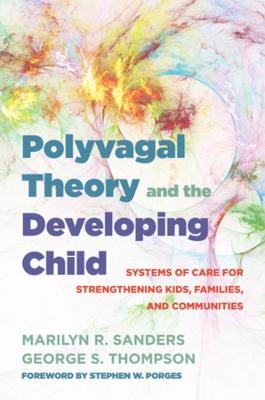
Polyvagal Theory and the Developing Child
Systems of Care for Strengthening Kids, Families, and Communities
Seiten
2021
WW Norton & Co (Verlag)
978-0-393-71428-9 (ISBN)
WW Norton & Co (Verlag)
978-0-393-71428-9 (ISBN)
How sustained disruptions to children’s safety have physical, behavioural and mental health impact that follow them into adulthood.
At its heart, polyvagal theory describes how the brain’s unconscious sense of safety or danger impacts our emotions and behaviours. In this powerful book, pediatrician and neonatologist Marilyn R. Sanders and child psychiatrist George S. Thompson offer readers both a meditation on caregiving and a call to action for physicians, educators and mental health providers. When children don’t have safe relationships, or emotional, medical or physical traumas punctuate their lives, their ability to love, trust and thrive is damaged. Children who have multiple relationship disruptions may have physical, behavioural or mental health concerns that follow them into adulthood.
By attending to the lessons of polyvagal theory—that adult caregivers must be aware of children’s unconscious processing of sensory information—the authors show how professionals can play a critical role in establishing a sense of safety even in the face of dangerous, and sometimes incomprehensibly scary, situations.
At its heart, polyvagal theory describes how the brain’s unconscious sense of safety or danger impacts our emotions and behaviours. In this powerful book, pediatrician and neonatologist Marilyn R. Sanders and child psychiatrist George S. Thompson offer readers both a meditation on caregiving and a call to action for physicians, educators and mental health providers. When children don’t have safe relationships, or emotional, medical or physical traumas punctuate their lives, their ability to love, trust and thrive is damaged. Children who have multiple relationship disruptions may have physical, behavioural or mental health concerns that follow them into adulthood.
By attending to the lessons of polyvagal theory—that adult caregivers must be aware of children’s unconscious processing of sensory information—the authors show how professionals can play a critical role in establishing a sense of safety even in the face of dangerous, and sometimes incomprehensibly scary, situations.
Marilyn R. Sanders, MD, is a pediatrician/neonatologist and professor of pediatrics at Connecticut Children’s Medical Center in Hartford, Connecticut. George S. Thompson, MD, is a child psychiatrist who assists healthcare organizations in building emotionally safe, curious, and collaborative cultures. He lives and works in the Kansas City area.
| Erscheinungsdatum | 17.11.2021 |
|---|---|
| Reihe/Serie | IPNB |
| Zusatzinfo | 25 black-and-white illustrations |
| Verlagsort | New York |
| Sprache | englisch |
| Maße | 163 x 239 mm |
| Gewicht | 600 g |
| Themenwelt | Geisteswissenschaften ► Psychologie ► Biopsychologie / Neurowissenschaften |
| Geisteswissenschaften ► Psychologie ► Entwicklungspsychologie | |
| Geisteswissenschaften ► Psychologie ► Klinische Psychologie | |
| ISBN-10 | 0-393-71428-4 / 0393714284 |
| ISBN-13 | 978-0-393-71428-9 / 9780393714289 |
| Zustand | Neuware |
| Haben Sie eine Frage zum Produkt? |
Mehr entdecken
aus dem Bereich
aus dem Bereich
Grundlagen, Klinik, Rehabilitation
Buch | Softcover (2024)
Urban & Fischer in Elsevier (Verlag)
56,00 €
Buch | Spiralbindung (2022)
modernes lernen (Verlag)
29,95 €
Grundlagen, Klinik, Therapie und Verlauf der …
Buch | Softcover (2024)
Kohlhammer (Verlag)
84,00 €


